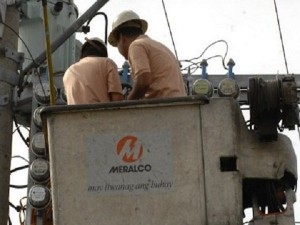MANILA, Philippines — While the Department of Energy (DOE) prepares to file comments on the Supreme Court’s 60-day temporary restraining order (TRO) on the P4.15/kWh power rate hike in December 2013, power generation firms have declined to bare plans on the matter.
Energy Secretary Carlos Jericho Petilla said in a text message, “We will answer as directed by SC. We will most likely file our response either tomorrow (Jan 10) or Monday.” Another respondent, the Energy Regulatory Commission (ERC), said it already filed its comment on Jan. 8.
Power generation firms affiliated with the Philippine Independent Power Producers Association, Inc. (PIPPA) had yet to comment, saying a new Supreme Court ordering the inclusion of several power firms as respondents had yet to reach the concerned parties.
“None of us have read it (SC order),” PIPPA president Luis Miguel Aboitiz said in a text message.
The Philippine Electricity Market Corporation (PEMC), which operates the electricity spot market, is set to be included among the respondents. PEMC has not answered to requests for comment as of this writing.
Earlier, the high tribunal denied the Office of the Solicitor General’s petition to let private respondent Meralco (Manila Electric Co.) defend the controversial rate hike that was supposed to have been staggered in December, February and March. The OSG had wanted to be excused from defending the DOE and the ERC in the petition assailing the pass-through rate hike.
However, the high tribunal required the OSG, the DOE, and the ERC to submit comments on or before January 17 and attend the preliminary conference on January 13. Oral arguments are set on January 21.
The Supreme Court also ordered the groups of petitioners in the case to amend their petition in order to include PEMC and power plant operators SEM-Calaca Power Corp., Masinloc Power Partners Corp., Therma Luzon Inc., San Miguel Energy Corp., South Premier Power Corp. and Therma Mobile Inc. as “necessary parties.”
A week before the TRO issuance on Dec. 23, six party-list lawmakers from the Makabayan bloc in the House — Bayan Muna, Gabriela Women’s Party, ACT Teachers and Kabataan Party — and a group composed of the National Association of Electricity Consumers for Reform (Nasecore), Federation of Village Associations, and the Federation of Las Piñas Homeowners brought the petitions opposing the rate increase.
In the meantime, in following the TRO, Meralco has notified its 5.3 million customers on ways the company is complying with the halt order.
Customers who have received their December 2013 billing statements were given two options. Meralco said they could either pay an amount equivalent to their November 2013 bill or pay the December 2013 bill in full if that amount was lower than the previous month’s bill. This, Meralco said, would be “in compliance with the TRO issued by the Supreme Court on Dec. 23.”
For those who have paid their December bill in full before the issuance of the TRO, Meralco would apply any upward or downward adjustment to their subsequent bill “as authorized by the relevant authority,” said Al Panlilio, company SVP and head of Customer Retail Services and Corporate Communications, in the letter.
The P4.15/kWh increase in the power generation and related charges for December 2013, which was the subject of the TRO, was due to the month-long maintenance shutdown of the Malampaya gas platform (which forced certain power plants to use more expensive fuel) and forced outage of other major power plants in Luzon.
With the rate hike of P4.15 per kwh (initially set to be staggered in three monthly installments) on hold, Meralco has to deal with about P10 billion in payables to energy suppliers without being able to collect the increse. Of the total payables, about P6 billion is due to the Philippine Electricity Market Corp., the operator of the Wholesale Electricity Spot Market, and the balance of about P4 billion is due to power plant operators with bilateral supply contracts.


